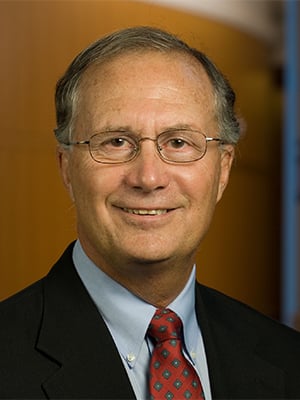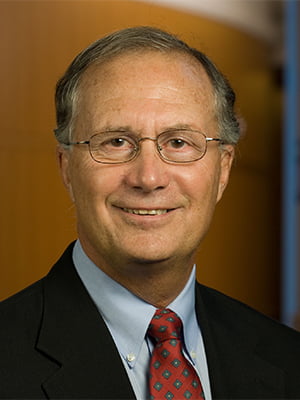George J. Siedel is the Williamson Family Professor Emeritus of Business Administration and Arthur F. Thurnau Professor Emeritus of Business Law at the Ross School of Business, University of Michigan. Even if you did not get your M.B.A. at U-M, there is a good chance that you’ve taken one of George’s courses on Coursera, FutureLearn or edX. George graciously agreed to answer my three questions on his long career as a professor, author and creator of one of the most successful open online business courses of all time.
taken one of George’s courses on Coursera, FutureLearn or edX. George graciously agreed to answer my three questions on his long career as a professor, author and creator of one of the most successful open online business courses of all time.
Q: Since you launched your open online course Successful Negotiation: Essential Strategies and Skills, over 1.4 million learners have enrolled across Coursera, FutureLearn and edX. What factors went into your decision to create and launch this course, and what impact has it had on your academic career?
A: I launched the course because negotiation is an essential skill, and I wanted to share the in-person learning experience with online learners worldwide. Before developing the virtual course, around 200 students and business leaders took my residential course annually. I initially wondered whether as many as 1,000 learners would enroll in the virtual course. To my surprise, the number exploded, with over 1.1 million learners on the Coursera platform alone. This has resulted in greater international recognition of my teaching and research. Over the past year, for example, I have been invited to participate in negotiation webinars in the U.S., Europe, Asia and South America for organizations ranging from the London School of Economics to an organization in Brazil created to help women move into leadership positions.
Q: You recently published a book, Seven Essentials for Business Success: Lessons From Legendary Professors (Routledge). What do you think these legendary business school professors would make of your enthusiasm for open online learning? What impact do you think that online learning — both scaled and traditional — will have on elite business school education?
A: The book profiles professors from leading universities who represent a variety of disciplines. Several of these professors already teach MOOCs. The others are undoubtedly enthusiastic about new course delivery technology because they are at universities — Harvard, MIT, Stanford, etc. — that are heavily engaged in online learning. The major impact that online learning will have on business education, including the top schools, is that it will continue to improve residential education. For example, my negotiation MOOC has been used in undergraduate, M.B.A. and Ph.D. residential courses, enabling instructors to cover more material in an efficient manner. I have also developed new tools for the MOOC, such as a negotiation planning website, that benefits students in residential courses.
Q: You and I first met through our mutual friend and colleague, U-M’s associate vice provost for academic innovation and founding executive director for the Center for Academic Innovation, James DeVaney. As you may know, I write often about learning innovation and the evolution of organizations like CAI. What can you tell us about working with a group like this from the perspective of a faculty innovator?
A: The growth of CAI under James DeVaney’s leadership has been the most exciting development on campus in recent years. Faculty innovators from a variety of disciplines now have a go-to organization that is staffed by experts who are able to convert ideas into new learning modalities. Transforming my residential negotiation course, which includes many simulations, to a MOOC was a daunting challenge that was accomplished with the support of the dedicated and talented CAI staff. For example, when I asked them to develop a process that would enable thousands of learners to select and negotiate with someone from a different country, they investigated the latest technology under development elsewhere and ultimately came up with their own solution. In addition to being responsive to faculty needs, CAI is proactive in encouraging proposals from faculty for innovations that blend residential learning with our global virtual campus.
[“source=insidehighered”]

